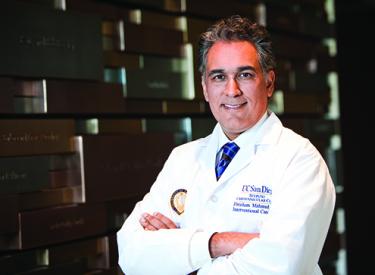SCAI Members,
Yesterday at the American Heart Association (AHA) 2019 Scientific Sessions, results from the highly anticipated ISCHEMIA trial were presented. A total of 5,179 patients with stable coronary artery disease, and moderate to severe ischemia were randomized to routine invasive therapy (revascularization with PCI or CABG in 80%) versus medical therapy. No difference in MACE was observed at 3.3 year follow-up (13.3% routine invasive vs 15.5% medical therapy, p=0.34) although 23% of the medical therapy group required revascularization. The relative risk of spontaneous myocardial infarction was reduced by 33% with the routine invasive approach (HR 0.67; 95% CI 0.53,0.83).
The results were consistent with earlier studies showing that medical therapy is essential to keep patients safe and helps improve quality-of-life, with or without early intervention. The results of the trial indicate that a routine strategy of early revascularization may not be necessary to prevent adverse events in stable, mildly symptomatic patients with ischemic heart disease. However, the study also demonstrated that early intervention is safe for patients who prefer to minimize the burden of medical therapies, those who have limited tolerance to medications, or those who have persistent symptoms despite medical therapy.
Finding that early revascularization doesn’t lower rates of death, heart failure, or cardiac arrest in these patients wasn’t surprising, since earlier work indicated that percutaneous coronary intervention (PCI) offered little advantage over medical therapy for these endpoints. However, the finding that early revascularization resulted in lower rates of spontaneous myocardial infarction was gratifying. Prior to the ISCHEMIA trial, we were unsure whether PCI could offer this benefit. This study helps interventional cardiologists provide more accurate information to patients regarding the benefits of PCI.
The ISCHEMIA quality of life results showed that angina was relieved reliably in patients with chest pain or discomfort. This confirms the appropriateness of using PCI to improve quality of life.
It is important to note that this study does not address patients with accelerating anginal symptoms or an acute coronary syndrome. For those high-risk patients, early intervention plus medical therapy remains the recommended course of treatment as compared to medical therapy alone for optimal patient outcomes.
The ISCHEMIA trial findings only underscore the importance of shared medical decision making between physicians and patients. As the leading voice in invasive and interventional cardiology, SCAI strives for unity with our members in our discussions and evaluations of the study’s findings. SCAI encourages the development of individualized treatment plans to assure the best patient-centered care possible.
In the coming days, we will be sharing an educational toolkit that contains a series of materials for you to use for patient care and educational activities.
Sincerely,
Ehtisham Mahmud, MD, FSCAI
President, SCAI 2019–2020
Professor and Division Chief, Cardiovascular Medicine
University of California, San Diego

